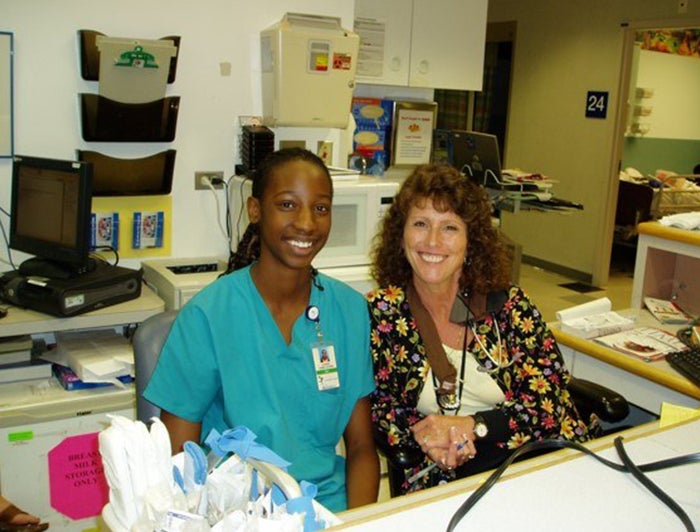Building Resilience among Health Care Workers during the Holidays

Hospitals across the country are experiencing a surge in patient stays due to the triple threat of COVID-19, respiratory syncytial virus (RSV) and the flu, among other medical conditions. And it’s happening during the holidays, which already is a busy and stressful time for health care workers. Now more than ever, it's important for hospitals and health systems to create an infrastructure and resources to support physicians, nurses and care team members who already have been heavily taxed by the pandemic.
Children's Hospital Colorado, located in Aurora, is experiencing record volumes of patients with respiratory illnesses in their Emergency Departments, with inpatient units and intensive care units operating at or above maximum capacity for several weeks. The number of patients seeking care has been on average 30% higher than the busiest of days in a typical respiratory season.
The wellbeing of Children’s Hospital Colorado’s staff is a top priority among the organization’s leadership during these difficult times and all year round, and they are investing time and resources to provide best-in-class employee wellness programs. Resources include easy, 24/7 access to behavioral health services; training to help managers identify those struggling with mental health and know how to intervene; and a culture where team members can feel safe to communicate openly and honestly about their mental health and building resilience.
Here are a few tips shared by Children’s Hospital Colorado to help health care workers recognize the increased demands of the holiday season and take time to proactively build resilience.
Recognize Holiday Stress Triggers
- An audit of your holiday stress, both personally and professionally, is the first step in helping you make decisions about what activities are meaningful and what activities are unnecessary.
- Start by writing down all the stressors in your typical day, then add additional holiday season demands (buying gifts, attending parties, hosting events, sending holiday cards). Review the list and circle activities that you truly enjoy. Star activities that cause stress and brainstorm ways that you can modify the task to reduce stress. Put a line through all activities that can be completely eliminated. Finally, underline activities you can involve others in to help reduce your workload.
Build Resilience
In addition to simplifying holiday demands, it is necessary for providers to focus attention on daily activities that help strengthen resilience through increasing positive emotions. Below is a short list of suggestions for proactively building resiliency during the holiday season:
- Cultivate a culture of appreciation.
- Research consistently shows that gratitude improves your mood and reduces the adverse consequences of stress. Health care providers are often seen as leaders in their organization and the holiday season is an especially important time to use the leadership platform to help increase positive emotions in yourself and everyone you work with.
- Make a goal to express appreciation for one person you work with at least three times a week during the holiday season. Appreciation can be shared in person or through e-mail, but it should specifically identify what you appreciate about that person and why that contribution is important to you. Committing to this small weekly activity during the holiday season can boost positive emotions in both your internal and external environments.
- Attend to your basic needs.
- It is difficult to maintain schedules during the holiday season. Often stress can disrupt sleep patterns and make it more difficult to manage your emotions. Changes in the weather and shorter days during the holiday season make sleep and mood regulation more difficult. To best adapt to these changes, make a specific point to maintain a consistent sleep schedule during the holiday season. Having a consistent bedtime and wake time is an important anchor for achieving restful sleep.
- Make space for mindfulness.
- Mindfulness is a very old concept that has been proven to be highly effective in reducing stress and decreasing burnout in a variety of different populations (including among health care providers). Practice engaging in mindful breathing for two minutes.
- Start by sitting comfortably in a chair and closing your eyes. Then, focus attention on your breath coming in and out of your body. When you get distracted, notice where your mind goes then bring attention back to the breath. The goal is to notice the activity of your mind, let it go and return to breathing. Try to take a break at work and do two minutes of mindful breathing at least three times a week during the holiday season. Remember it only takes six minutes a week to improve provider resiliency and reduce your risk for physician burnout.
For more information, visit: Children's Hospital Colorado - Provider Resiliency and Managing Stress During the Holidays

